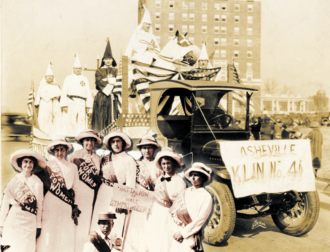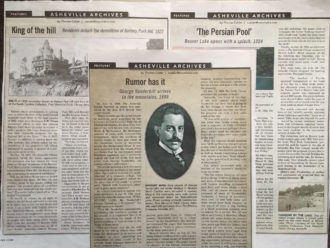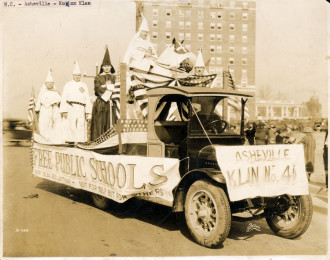“Imagine there’s a small town called Bondageville, named after its distinguished founder, Samuel Ashe Bondage.”


“Imagine there’s a small town called Bondageville, named after its distinguished founder, Samuel Ashe Bondage.”

“What Mr. Ready fails to grasp is the idea that Confederate monuments were intimidation tactics when they were constructed in the first place.”

“White supremacy wasn’t merely a footnote to Vance’s public career, after all, and he would have been the first to tell you so.”

In the summer of 1920, local residents disputed the merits and perceived risks associated with the passage of the 19th Amendment. Racism, rather than sexism, was a key factor on both sides of the argument.

“Please realize every day this statue remains intact is another day you’re not actively renouncing white supremacy.”

See what historical events captured readers’ attention throughout 2018.

In 1900, N.C. was set to vote on an amendment to its state constitution. Literacy tests were among the additions proposed. Illiterate white men, however, need not worry. This point was made clear in a Jan 30, 1900 Q&A in The Asheville Daily Citizen. Titled, “WHITE SUPREMACY MADE PERMANENT,” the piece answered all inquiries and concerns surrounding the amendment.

In Western North Carolina, homegrown activists of all stripes are working to effect change among an increasingly divided populace, drawing on historical ideals and using new technologies to spread their messages. Xpress reached out to local activists from across the political spectrum to share their motivations, challenges and techniques.

“First off, let’s agree that anybody with an ounce of decency must feel a bit embarrassed that Asheville has given its top award for excellence to a man like Zebulon Baird Vance.”